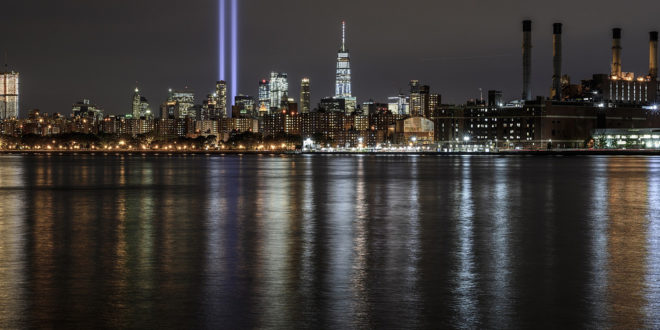Writing out these thoughts provides therapeutic support for me more than actually answering my questions. It represents a feeble attempt on my part to find meaning and understanding in the face of a horrendous meaningless act.
As a nation, we’ve always had our enemies. Whenever the United States has defended the rights of those who simply wanted to be free, there were, and still are those who try to bring us down. If you trace our history back to when our democracy was formally established, war has always played a role in making freedom possible. We’ve had our share of opponents, but over the years we’ve developed a tremendous amount of goodwill throughout the world. It may be my imagination, but lately it seems that hatred for America is more pervasive; more mainstream. Why?
The kind of hatred that motivates a handful of Islamic radicals to fly jets into New York skyscrapers has to be fed by more than theological differences. Maybe they perceived that America was somehow preventing the Palestinian people from fully gaining their independence and establishing a homeland where they could be free? Or, perhaps they viewed American culture as a cesspool of evil, contaminating the world, and this was their attempt to try and stop it? I don’t know. But I do know that we need to ask ourselves some hard questions.
For the hi-jackers, nothing justifies what they did. It was evil to kill innocent men and women who were not associated with the issues driving their concerns. But now that it has happened, what can we learn from their actions and culture? What can we learn about ourselves?
These tough questions cannot be answered in a few paragraphs and require more than cursory observation.
We could begin by looking at ourselves. Do our economic policies and diplomatic decisions produce unintended negative consequences? Are we doing things that, although they may be good for us, only hurt other parts of the world? How do we treat other nations? Do we take their resources without providing fair compensation? Do we bully the smaller countries whom we know cannot resist our power? Is it really true that with only 4.6% of the world’s population the U.S. consumes 33% of the world’s resources?1
Agents of Hope
I don’t know. But I do know that building an economy on the principle of progressive consumption is not sustainable in the long term. We either end up exploiting someone to keep the markets alive, or we eventually turn the planet into an environmental wasteland.
Today, we need wisdom to make good choices. Although we cannot completely avoid conflict, God calls us to be agents of hope and reconciliation. Let’s pray that we be so ourselves and that our leaders (whatever political persuasion) be willing to be the same.
“If you need wisdom, ask our generous God, and he will give it to you. He will not rebuke you for asking” (James 1:5) NLT.
Rich DuBose writes from Northern California.
If you liked this, you may also like First Responders
1. http://earthtrends.wri.org/updates/node/236.
© 2002 - 2025, AnswersForMe.org. All rights reserved. Click here for content usage information. Answers for Me Support & encouragement for every-day life
Answers for Me Support & encouragement for every-day life

